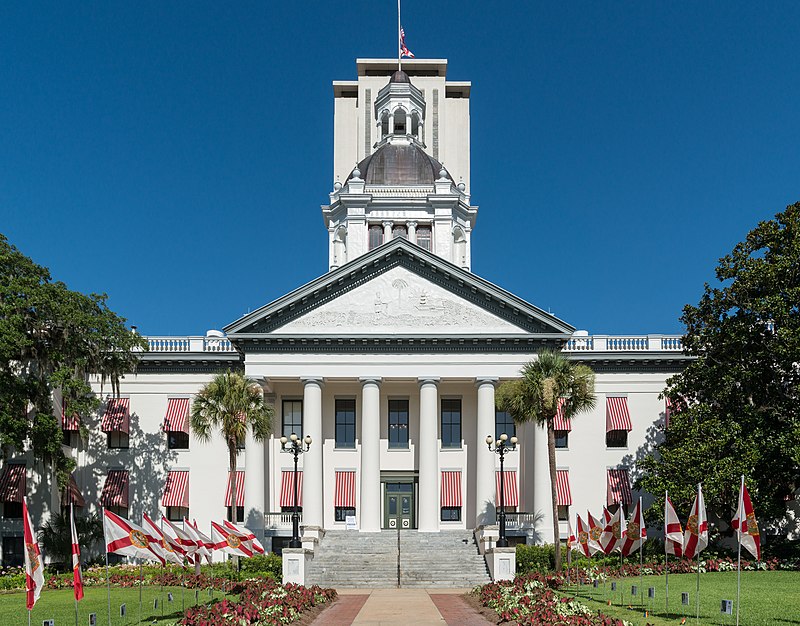
Julio Colby is a student at Harvard Law School.
In Today’s News & Commentary: Florida considering rolling back child labor regulations; Starbucks violated labor law in Salt Lake City store; Eleventh Circuit raises FMLA retaliation standard creating a circuit split.
Florida is considering legislation that would relax child labor restrictions, allowing high school students to work longer hours and perform hazardous jobs under adult supervision. House Bill HB 49 would enable 16- and 17-year-olds to work extended hours, including at night, preempting local curfews preventing late-night work. Another bill, SB 460, proposes permitting teens to engage in construction work at heights over six feet, typically deemed hazardous by child labor laws. The bills are part of a broader trend in states to ease restrictions on underage workers, supported by industry groups seeking increased labor flexibility. Opponents express concerns about potential negative impacts on school attendance and graduation rates, as well as the risk of workplace exploitation, including wage theft. Critics argue that families lacking economic means may be disproportionately affected. The bills align with industry groups’ efforts to address staffing shortages, with the Florida Restaurant & Lodging Association advocating for the removal of work-hour restrictions for 16- and 17-year-olds. While proponents emphasize alignment with federal labor laws and the need for skilled trades training, opponents stress the importance of not compromising the safety and well-being of young workers.
On Tuesday, an NLRB judge found Starbucks violated labor law when a manager in a Salt Lake City store unlawfully questioned an employee about union support among the staff and revoked permission to display a large union poster. The judge determined that the manager’s statements asking what changes could be made to prevent unionization and questioning whether the staff hated her for unionizing violated the NLRA by chilling worker unionizing efforts. The judge also found Starbucks in violation of the NLRA for ordering the removal of a large union poster from the store’s community board, which contained information about the collective bargaining process, union proposals, and anti-union messages. The judge emphasized that an employer cannot selectively enforce rules in response to union activities and ordered Starbucks to cease such practices. The Salt Lake City store’s workers voted to be represented by the Starbucks Workers United union in June 2022.
On Wednesday, the Eleventh Circuit threw out an FMLA retaliation suit by a former Walgreens employee, raising the bar plaintiffs must meet to show retaliation under the Act. The court ruled that Lapham failed to demonstrate that her request for FMLA leave was a “but-for” cause for her termination, establishing a higher threshold than the motivating factor standard used by some other courts. The but-for causation standard requires the adverse employment action to not occur without a specific factor, whereas the motivating factor standard requires only that a certain factor motivated the action. The decision creates a circuit split on the causation threshold for proving FMLA retaliation, increasing the likelihood of Supreme Court intervention. Doris Lapham alleged she was terminated in 2017 as retaliation for requesting FMLA leave and complaining about safety conditions at the Daytona Beach Walgreens where she worked. While a federal district court initially supported her claim, it later applied the but-for causation standard, leading to the dismissal of her lawsuit. Despite Lapham’s plea that the motivating factor standard is used by seven other circuit courts and consistent with DOL regulations, the Eleventh Circuit held that Congress’s clear intent in the FMLA’s retaliation provision embraced the but-for causation standard, rejecting deference to the DOL’s interpretation.






Daily News & Commentary
Start your day with our roundup of the latest labor developments. See all
February 19
Union membership increases slightly; Washington farmworker bill fails to make it out of committee; and unions in Argentina are on strike protesting President Milei’s labor reform bill.
February 18
A ruling against forced labor in CO prisons; business coalition lacks standing to challenge captive audience ban; labor unions to participate in rent strike in MN
February 17
San Francisco teachers’ strike ends; EEOC releases new guidance on telework; NFL must litigate discrimination and retaliation claims.
February 16
BLS releases jobs data; ILO hosts conference on child labor.
February 15
The Office of Personnel Management directs federal agencies to terminate their collective bargaining agreements, and Indian farmworkers engage in a one-day strike to protest a trade deal with the United States.
February 13
Sex workers in Nevada fight to become the nation’s first to unionize; industry groups push NLRB to establish a more business-friendly test for independent contractor status; and UFCW launches an anti-AI price setting in grocery store campaign.